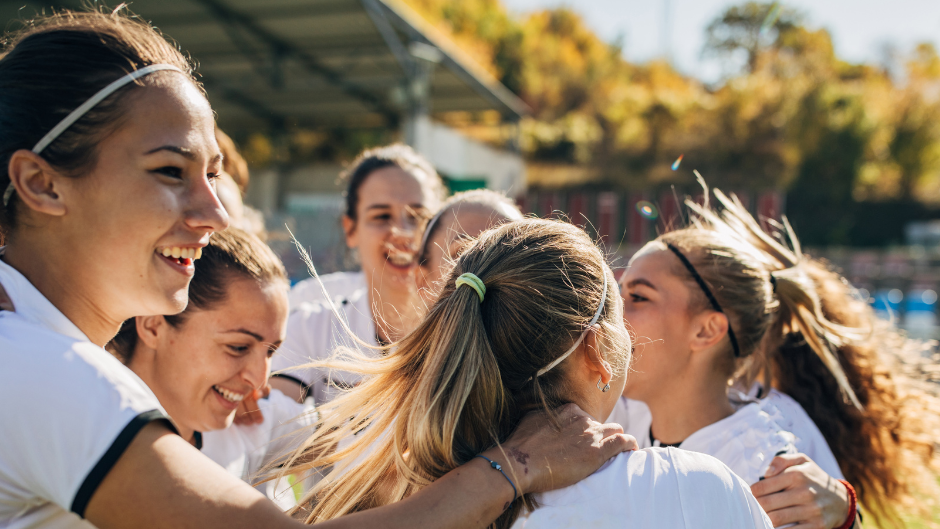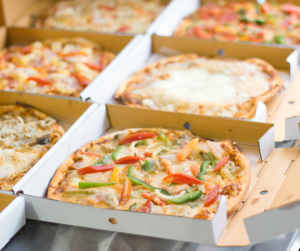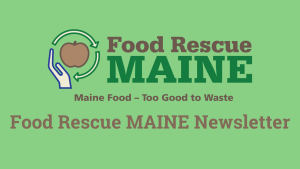
Food is Fuel – So Why is There So Much Food Waste in College Athletics?
My Experience with Food Waste in College Athletics

As a fourth-year Division 1 soccer player and a Mitchell Center food waste student intern, I have noticed that as athletes we learn about nutrition and food as fuel for our bodies, yet we end up wasting mounds of food.
I first noticed this waste with the catered food we ordered on away-trips. We throw away full or half-full containers of good, edible pasta, sauce, salad, and even meat. On bus-trips, many whole pizzas were thrown away because we simply had too many for our team. This led me to question what we can do about our food waste.
Investigating the Issue
It makes sense that college athletic departments would be worried about large amounts of food waste, especially at sporting events. However, food waste on the individual team level is often overlooked. Click here to access the Collegiate Zero Waste Playbook, and improve your waste diversion. Reducing this food waste is essential because there are often large amounts at this smaller level. This is because coaches use catering-style meals on away trips, as a cheaper option than restaurant dining. Unfortunately, these catered meals create large amounts of food waste. This seemed like an issue that could be remedied, so I wanted to investigate.
I started by asking my coach why we order so much catered food, knowing that at the end of our meals we often throw away full or half-full catered food boxes. She told me that because they do not know exactly how much food the players will eat, they are unable to order the ‘perfect’ amount – and would rather have too much food than too little.
While I completely understood and appreciated their problem, I still struggled with the idea that we had to throw away all of this perfectly edible food. Reflecting on my work with the Mitchell Center as a food waste intern, I know that there are always good solutions to food waste.
Finding a Solution- The Food Recovery Hierarchy
The EPA food recovery hierarchy suggests that the first and best food waste solution is to reduce the amount of wasted food. Click here to learn more about the food recovery hierarchy. In our case, this was not possible, so we moved on to the second solution on the hierarchy- feeding people. After further discussion, a few of my teammates and I came up with a simple solution: we would give our remaining food to the hotel staff where we were staying. We also allowed players to take home any extra pizzas from our bus-trip meals. We were able to feed lots of people and eliminate our team’s food waste.
What Can Universities Do?
For the general college athletics food waste problem, there are also good solutions. Nearly 40% of college students experience food insecurity. Rather than being thrown away, excess food from college athletic events should be donated to campus and community food pantries. Click here to learn more about college students and food insecurity. There are several ways for universities to repurpose these large amounts of food instead of wasting it. Donating excess food to students or local food banks is a good option, but there is more that can be done in the preparation of this food to reduce waste before it happens. Click here to learn how you can reduce garbage at sporting events. Examples of this include better ingredients that emit less greenhouse gasses, educating people about food waste, and providing more spaces for composting and recycling in athletic stadiums.
What Can YOU Do?
While these ideas work for college athletics food waste problems, they also have practical implications. Maybe you struggle with food waste when you order or even make food for a party- and always have leftovers. Since you are not feeding team athletes, you could try to reduce
the waste with this great website that helps you estimate how much food you should make or order based on the number of people that you are serving. Click here to use the Party Food & Drink Calculator. If reduction is not an option, consider giving your guests to-go boxes of the extra food or identify soup kitchens or shelters where you can donate your leftovers.
There are solutions to food waste all around us, as long as we look for them.
And always remember- Maine food is too good to waste.
– Halle R., Mitchell Center Student Intern
I am an athlete who is passionate about contemporary art, reading the classics, and finding new music.

